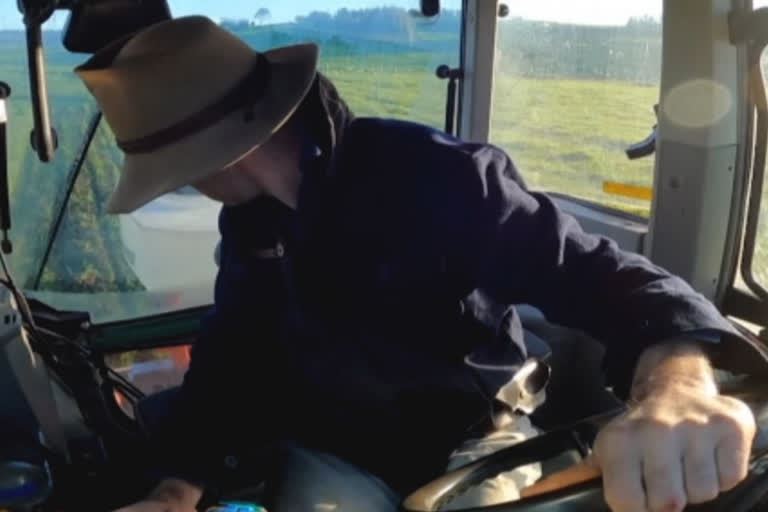Dunorlan, Tasmania: Australia's red meat industry is aiming to become carbon neutral by 2030. Sam and Stephanie Trethewey, who moved from Melbourne two years back with a dream of producing climate-friendly beef, are aiming to go beyond the usual carbon neutral target.
"When you look at the enormous task that we have to try and curb climate change as a global civilization, carbon-neutral is not going to be good enough we've got to be net positive. We've got to be going that extra mile," says beef producer Sam Trethewey.
In order to capture more carbon in their soil, they sowed up to 25 different plants in their cattle paddocks.
"When we've got the multi-species, we've got deep roots, medium roots, short roots, and so we can bring carbon like at different layers into our soil profile," says agronomist Robin Tait.
Beef cattle emits methane by burping, that's seen as a big issue in the fight against climate change.
But Sam and Stephanie say cattle is crucial for their system to work.
Also read: Iraqi farmers turn to corn for its high yield
"We need them to eat the top of the plants to regenerate that growth and turbo-charge the soil and the plant," says Stephanie Trethewey.
"And that's what flips the whole argument on its head," adds Sam Trethewey.
Two years ago, the Tretheweys were the first farmers in Tasmania to register a soil carbon project with the Federal government's emissions reduction fund.
"You know, in the next two or three years we might get 12 to 15 grand from our carbon credits, which is not to be sneezed at," says Sam Trethewey.
But money is not really the main focus here since carbon-rich soils produce more.
"The greatest benefit, income benefit, that you get from carbon farming at current carbon prices is through the co-benefits for livestock or for crop or pasture production," says associate professor Matthew Harrison of the Tasmanian Institute of Agriculture.
And Harrison's team has started trial feedings of biochar, a methane inhibitor, to Sam and Stephanie's calves.
"I think Sam and Steph make a good exemplar for sustainable profitable low emissions agriculture for Tasmania," he says.
In this butcher shop, customers have started to ask about the impact of beef products on the climate.
"Climate-friendly beef product and also climate-friendly products across the board in the meat industry is going to become really important," says butcher shop owner Emma Wills.
Dairy farms and other livestock operations are major sources of methane, a heat-trapping gas many times more potent than carbon dioxide.
AP



